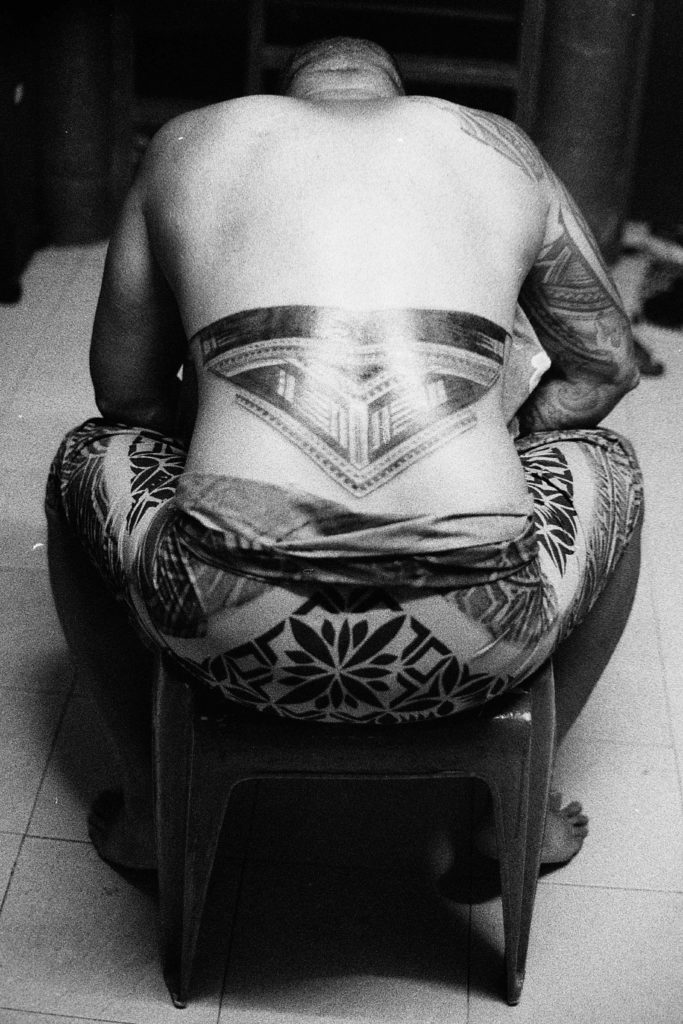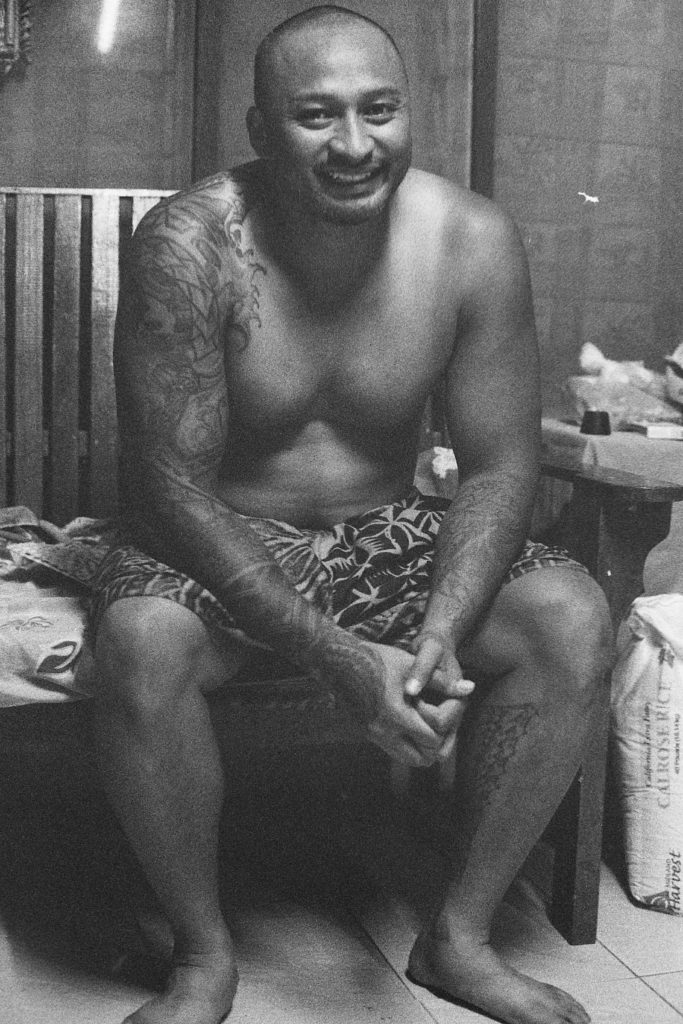About American Matai
“Matai” in Samoan means chief. Each Samoan clan has one. Chiefs are selected through a process of all adult members giving their voice. The elder chief may name his choice for a successor from his deathbed but requires consideration by members of the ‘aiga (clan). Woman are not excluded and can be a chief. Sa’o is legally the eldest chief and appoints all other chiefs. One of the traditional requirements to be a chief is tautua “service to the family.” Others are initiative and intelligence, age and knowledge of ceremonial protocol, and personal wealth and experience in either business or political affairs of government.
Chiefs are the family patriarch. Chiefs bring prestige and that must be uphold. They are responsible for: maintaining family unity and harmony, promoting participation in religious or church-related activities, and insuring family’s children are educated. They must serve as the family spokesman in the village council of chiefs “fono” thereby providing the family a voice in all village matters and public affairs. Most important is they are the trustee of land. Most land in American Samoa falls under 1) family land- belongs to one extended family 2) village land- open land that is village property. As trustee, the chief does not own land, nor does he have the authority to alienate the family from their land through sale or gifts. He does however have the authority to determine the use of family land. Can be used to build a house or cultivate crops. Actual sale of family land, to the government must be agreed upon by all members of the extended family. Such agreement is often difficult to obtain, for Samoans, as a rule, are quite reluctant to be permanently separated from landholdings. Chiefs are also head of extended families, but the rank of their titles does not carry enough prestige or status to warrant special attention in the power structure of the village. They sit on the flanks of the high chefs. Usually only one high chief in village but can be a group. Click here to watch the 10-minute sneak peak!


Chief Andy
The titles range from: High Chief (ali’i sili) and Chief (ali’i) and are ranked: Fa’asuaga – the Ali’ita’i of each village and Tamali’i – the high chiefs, most of whom are the Sa’o of each family.
Then Tulafale (talking chiefs) orators and ranked: Tama Matua (Certain villages only), To’oto’o (all villages in Manu’a) often the chiefs for high chiefs and usually serve as the spokesman for the entire village, Ponao’o (all villages in American Samoa) main orators of village councils.
Andy will go back to Samoa and discover his culture. He will learn about the ‘ava ceremony which is the most significant traditional event in Samoan culture. It is a crushed root that gets seeped into a tea and served in a wooden bowl to guests of the village. It is extremely formal and ritualistic and very important no matter the occasion. He will take part in traditional Samoan life including food gathering, cooking, farming, fishing and construction. He will dive into the working life of Samoans and see what is changing and why. He will learn about the culture’s connection with the natural world from the ocean to the land and how they use it to survive and protect it for future generations.
Andy will learn “Fa’a Samoa” which is the Samoan way of life, it is their identity which must be preserved.
